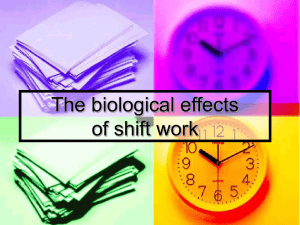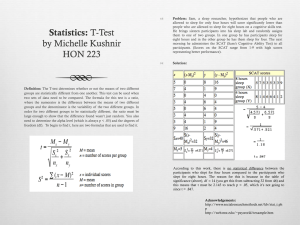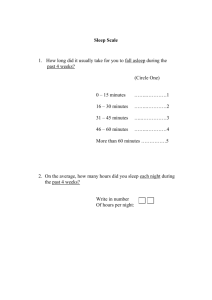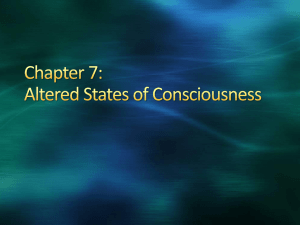chapter 5 review with answers
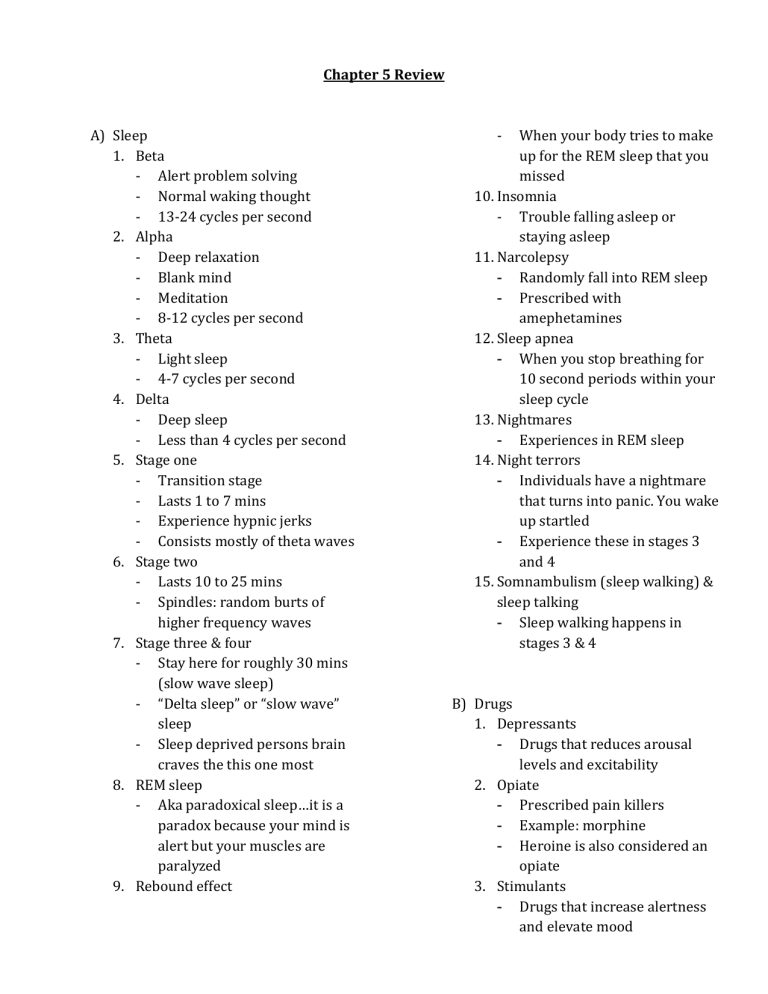
Chapter 5 Review
A) Sleep
1.
Beta
Alert problem solving
Normal waking thought
13-24 cycles per second
2.
Alpha
Deep relaxation
Blank mind
Meditation
8-12 cycles per second
3.
Theta
Light sleep
4-7 cycles per second
4.
Delta
Deep sleep
Less than 4 cycles per second
5.
Stage one
Transition stage
Lasts 1 to 7 mins
Experience hypnic jerks
Consists mostly of theta waves
6.
Stage two
Lasts 10 to 25 mins
Spindles: random burts of higher frequency waves
7.
Stage three & four
Stay here for roughly 30 mins
(slow wave sleep)
“Delta sleep” or “slow wave” sleep
Sleep deprived persons brain craves the this one most
8.
REM sleep
Aka paradoxical sleep…it is a paradox because your mind is alert but your muscles are paralyzed
9.
Rebound effect
When your body tries to make up for the REM sleep that you missed
10.
Insomnia
Trouble falling asleep or staying asleep
11.
Narcolepsy
-
Randomly fall into REM sleep
-
Prescribed with amephetamines
12.
Sleep apnea
-
When you stop breathing for
10 second periods within your sleep cycle
13.
Nightmares
-
Experiences in REM sleep
14.
Night terrors
-
Individuals have a nightmare that turns into panic. You wake up startled
-
Experience these in stages 3 and 4
15.
Somnambulism (sleep walking) & sleep talking
-
Sleep walking happens in stages 3 & 4
B) Drugs
1.
Depressants
-
Drugs that reduces arousal levels and excitability
2.
Opiate
-
Prescribed pain killers
-
Example: morphine
-
Heroine is also considered an opiate
3.
Stimulants
-
Drugs that increase alertness and elevate mood
4.
Hallucinogens
-
The perception in the the absence of a stimulus which has qualities of real perception
5.
Cannabis
-
Marijuana
-
THC causes the symptoms of feeling high
6.
Alcohol
- depressant
7.
MDMA
-
Ecstacy
-
Enhances ones senses and creates an immense euphoric feeling
8.
Dependency
-
Person needs the drug in order to function normally
9.
Tolerance
-
Ability to endure large doses of drugs due to the fact that your body is now used to the drug and can only feel the symptoms if you take larger quantities
10.
Barbiturates
-
Depressants
11.
Amphetamines
-
Stimulants
C) Misc
1.
EEG
-
Monitoring of brain electrical activity
2.
Electromyograph
-
Monitors muscle activity
3.
Electrooculograph
-
Eye movements
4.
Biological Rhythms
-
Periodic fluctuations in physiological functioning
5.
Circadian Rhythms
-
Day and night biological clock
6.
Jet lag
-
Disruption of circadian rhythms
7.
Melatonin
-
A hormone produced by pineal gland at night to help you sleep
-
Sunlight tells your body to stop producing it
8.
Wish fulfillment
-
Theory that our dreams are just our wishes being fulfilled
9.
Synthesis hypothesis
-
Theory that brain is creating these dreams because of the
BETA wave activity
10.
Hypnosis
- a systematic procedure that typically produces a state of heightened awareness
- effects: analgesia, sensory distortions and hallucinations, disinhibition, posthypnotic suggestions and amnesia
11.
Major theories of hypnosis
hypnosis as role playing: the subjects role expectations are what produce hypnotic effects, rather than a trancelike state of consciousness
hypnosis as an altered state of consciousness: hypnosis creates dissociation in consciousness (a splitting off of mental processes into two separate streams of awareness).. one stream connected to hypothalamus and external world, the other is a ‘hidden observer’ **Ernest Hilgard
12.
Sigmund Freud
Came up with the theory of wish fulfillment
Also uses dream interpretation to find out ones unconscious thoughts

